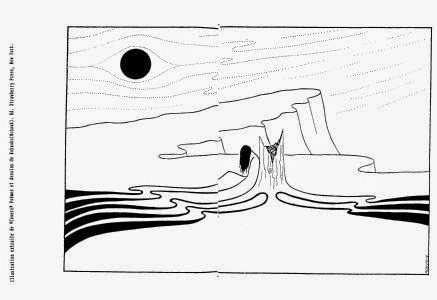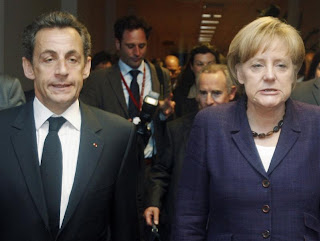... pas facile à traduire cette expression popularisée (introduite, peut-être) par Charles Wright Mills dans The causes of worls war three.
"Crackpot", c'est tout à la fois un cinglé et un imposteur qui vous en impose à première vue. Bref, ni le dingo à l'entonnoir ni l'imposteur "raisonnable" mais une détonante combinaison des deux où le talent de l'imposteur consiste à dissimuler son encombrant accessoire infundibuliforme sous les apparences de la plus élevée des compétences.
Le portrait psychologique que Charles Wright Mills trace de ce type de dirigeant mérite d'être relu au surlendemain de ce qui fut une des plus belles réunions de "crackpots" et au lendemain de leur pénible pédagogie télévisée :
Crackpot realists are so rigidly focused on the next step that they become creatures of whatever the main drift - the opportunist actions of innumerable men - brings.
(...)
In crackpot realism, a high-flying moral rhetoric is joined with an opportunist crawling among a great scatter of unfocused fears and demands. In fact, the main content of "politics" is now a struggle among men equally expert in practical next steps - which, in summary, make up the thrust toward war - and in great, round, hortatory principles.
(...)
The expectation of war solves many problems of the crackpot realists; it also confronts them with many new problems. Yet these, the problems of war, often seem easier to handle. They are out in the open : to produce more, to plan how to kill more of the enemy, to move materials thousands of miles.
(...)
So instead of the unknown fear, the anxiety without end, some men of the higher circles prefer the simplification of known catastrophe.
(...)
They know of no solutions to the paradoxes of the Middle East and Europe, the Far East and Africa except the landing of Marines. Being baffled, and also being very tired of being baffled, they have come to believe that there is no way out - except war - which would remove all the bewildering paradoxes of their tedious and now misguided attempts to construct peace. In place of these paradoxes they prefer the bright, clear problems of war - as they used to be. For they still believe that “winning” means something, although they never tell us what.
(...)
Some men want war for sordid, others for idealistic, reasons ; some for personal gain, others for impersonal principle. But most of those who consciously want war and accept it, and so help to create its "inevitability", want it in order to shift the locus of their problems.
Si vous voulez coller de plus près à l'actualité, remplacez "guerre" par "austérité" ... puis, au train où vont les choses, remplacez "austérité" par "guerre civile".


